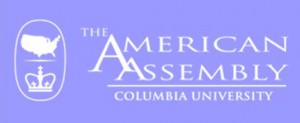 On the eve of a hearing on the Stop Online Piracy Act (SOPA) in the U.S. House of Representatives, two releases from the research and academic community suggest that the current debate is on the wrong track.
On the eve of a hearing on the Stop Online Piracy Act (SOPA) in the U.S. House of Representatives, two releases from the research and academic community suggest that the current debate is on the wrong track.
First, a new study by the American Assembly at Columbia University shows that the American public is strongly supportive of copyright protection in general, including in the online environment, but opposes draconian penalties and censorship as the primary tools for ensuring copyright compliance. The study finds, for example, that very few people support uploading copyrighted music and movies to public websites and endorse enforcement efforts that accurately target copyright infringers. People support modest (less than $100) fines for online infringement. But 72% of Americans oppose internet disconnections; 69% oppose monitoring of internet activity; strong majorities oppose blocking or “censoring” websites with some lawful content and support mandates for judicial warrants and determinations before any restraints of information on the internet occur.
The views of the general public appear aligned with a broad group of law professors who have criticized the enforcement procedures in SOPA and its Senate counterpart, the Protect IP Act. Three leading law professors sent a letter to the House of Representatives today raising constitutional and policy problems previously endorsed by over 100 law professors with respect to Protect-IP. The letter charges that “[w]hile there are some differences between SOPA and PROTECT-IP, nothing in SOPA makes any effort to address the serious constitutional, innovation, and foreign policy concerns that we expressed in that letter. Indeed, in many respects SOPA is even worse than PROTECT-IP.” Among the “infirmities” of SOPA, the letter draws special attention to four, explaining that SOPA would:
“Redefine the standard for copyright infringement on the Internet, changing the definition of inducement in a way that would not only conflict with Supreme Court precedent but would make YouTube, Google, and numerous other web sites liable for copyright infringement.
“Allow the government to block Internet access to any web site that “facilitated” copyright or trademark infringement – a term that the Department of Justice currently interprets to require nothing more than having a link on a web page to another site that turns out to be infringing.
“Allow any private copyright or trademark owner to interfere with the ability of web sites to host advertising or charge purchases to credit cards, putting enormous obstacles in the path of electronic commerce.
“Most significantly, it would do all of the above while violating our core tenets of due process. By failing to guarantee the challenged web sites notice or an opportunity to be heard in court before their sites are shut down, SOPA represents the most ill-advised and destructive intellectual property legislation in recent memory.”




